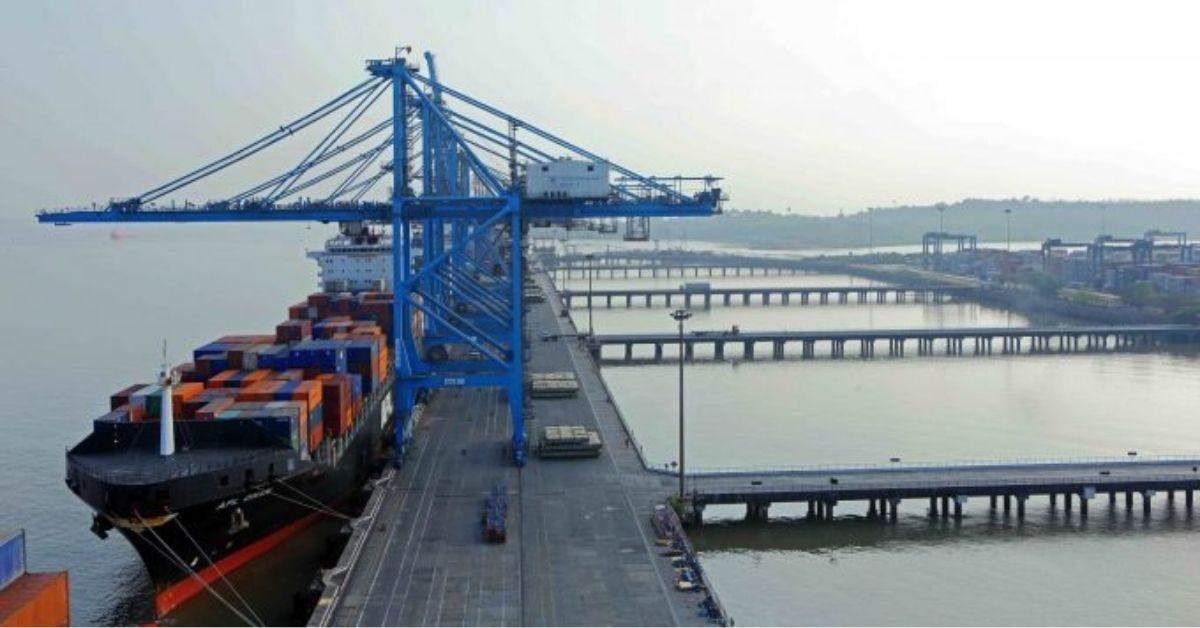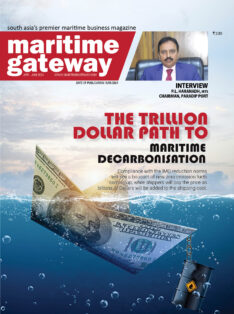Tamil Nadu Chief Minister M K Stalin has fired a fresh salvo against the new draft Indian Ports Bill, effectively telling Prime Minister Narendra Modi to drop moves to “impose a Centralised regulatory regime on non-major ports” which are currently administered by the State governments, arguing that it would “stifle” the State-specific initiatives and “choke” their development.
Stalin, a strong votary of federalism, conveyed his displeasure to Modi on the latest draft written by the Ministry of Ports, Shipping and Waterways to recast the more than a century old Indian Ports Act 1908, despite the Centre diluting many of the controversial provisions outlined in the first two versions of the draft.
Stalin was the first to criticise the second draft of the bill in 2021 after the DMK came to power under his leadership.
The Tamil Nadu Chief Minister told Modi to scrap the provision that seeks to make the Maritime State Development Council (MSDC) a regulatory body for non-major ports. Stalin also asked the Prime Minister to drop other Centralising provisions in the draft bill that would “encroach” upon the powers of the maritime States/State maritime boards.
Tamil Nadu’s stand on the draft bill suggests that the Centre will have to go back to the drawing board to rewrite the bill to get the backing of the States, said a port industry consultant.
In August, ET Infra reported that the revised draft bill could still elude consensus.
Stalin described the attempt to make the MSDC a regulatory body for non-major ports as “the most significant change” in the new draft bill.
“Currently, MSDC is only an advisory body and converting it into a regulatory body with permanent staff will surely encroach upon the powers of States. This may end up choking the future development of minor ports (those administered by the State governments),” he stated.
Further, the proposed composition of MSDC with five Secretaries and one Joint Secretary to the Government of India, along with the Administrators of the coastal Union Territories, as members is “inappropriate” as it excludes the Secretaries in charge of ports in the maritime States/Union Territories, Stalin pointed out.
“Like the GST Council, the MSDC must continue only as an advisory body with the Ministers concerned of the Union and the maritime States/Union Territories as members and officers should only be special invitees,” he suggested.
The Tamil Nadu Chief Ministry “strongly objected” to the constitution, functions and powers of the State Maritime Boards prescribed by the draft bill. The State maritime boards are currently governed by the respective State legislations.
“As per the proposed bill, if any amendments are required to these acts, they can be made by the State legislatures based only on the recommendations of the Centre or the MSDC. This would make the legislative process dysfunctional,” he asserted.
Besides, the appellate powers against the orders of the State maritime boards currently lie with the respective State governments.
“However, as per the draft bill, this power will go to the appellate tribunal which has been constituted by the Central government for the major ports (those owned by the Union government). This would affect the powers of the States to deal with disputes on their own,” Stalin wrote in the letter to the Prime Minister.
While calling for “deleting” the provisions relating to MSDC and the State maritime boards from the draft bill, Stalin said that the Indian port sector “needs less Centralisation and less regulation, not more”.
Stalin also drew the attention of the Prime Minister to the “long-term impact” of the intent of the draft Indian Ports Bill to “Centralise and regulate the sector”.
“Even though some of the suggestions from the maritime states and other stakeholders have been accommodated, I am afraid that the revised draft bill still largely continues to ignore international and domestic experience that ports are best managed by local and regional governments,” he said.
The growth trajectory of India’s port sector clearly shows that the non-major ports managed by the maritime States have grown faster than the major ports under the Union government.
“This was because the maritime States facilitated the growth of non-major ports through private investments and business friendly policies. Many such states, especially, Gujarat, Tamil Nadu, and Andhra Pradesh pioneered such facilitatory development of minor ports and have contributed to an increasing share of maritime cargo handling. This draft bill will stifle such State-specific initiatives by imposing a Centralised regulatory regime on non-major ports,” Stalin explained.
The Tamil Nadu Chief Minister sought Modi’s intervention to “ensure the continued growth of non-major ports by increasing the ease of doing business with minimum government and maximum governance”.







